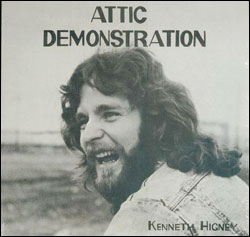PLEASE HELP ME. I’m listening to one song and I cannot stop. It’s called “Whore,” by Duluth, Minn., trio Low, off their new album Things We Lost in the Fire (Kranky). It’s not so much a tune as it is a magic spell. In four and a half minutes, “Whore” ravels from simple, melancholy slo-mo-emo into layered pop epic, only to dissolve as if it never was there in the first place. It’s a guitar-bass-drums thing, but it’s really distinctive: The tempo never strays from dreamtime, while the words are sung with this weird, beautiful precision, the male voice hypnotically intoning, “What is the whore you’re living for” over and over while the female voice gorgeously sings, “You will get your reward.” Then, over a wicked fuzz bass melody, both voices click onto the same words with the inevitable force of a ship leaving port: “You filled a house with bells/Now who can live like that/You want to speak like angels but you can’t.” Even after talking with the guy who wrote it about what the song is about, I have no idea what the song is about. I have to put on headphones before my officemate assaults me for listening so much that it drives him crazy, too.
Low
Paradox, Friday, April 13
Love frequently adopts the form of craziness, and I absolutely adore Low; their minimal, moody pop makes my stomach sink, my heart leap into my throat. One of the biggest mistakes a writer can make is to scribble about music that he or she absolutely adores. Love not only clouds one’s judgment, but for some reason the tool I have at my disposal—the language of criticism—seems to go limp, to stop working, when confronted with sweetness and light. It’s partly ’cause we’ve all been assaulted by the “greatest!/newest!/prettiest!” patois of advertising and tend only to believe criticism when it either supports opinions we already hold or is written by contrary, bah-humbug- ist creeps. I could stack superlatives end to end, but this would actually make my case for the band less believable. I’m no Greil Marcus, so I’ll get back to the subject at hand: Low—guitarist/vocalist Alan Sparhawk, drummer/vocalist Mimi Parker, and bassist Zak Sally—a group of early-thirtysomethings that formed in 1994.
We all want our artistes to suffer for their visions, but Low are the sweetest, nicest, most well-adjusted folks around. Alan’s father is a musician, and they talk craft over supper together. “There’s not a lot of people in bands who can say that their parents actually listen to their music,” Alan explains. “But I’ve had discussions with my father about our music that have been as in-depth as any friend or colleague or interview, you know? It’s really weird and great.” Alan and Mimi were grade-school sweethearts; they are married and have a new addition to their family, Hollis. Having a kid forces Sparhawk to wonder if he’s a bad parent for taking his kid on tour—”hauling my child across the country to ride in vans for eight hours a day and that kind of thing,” he says over the phone. “But babies have been raised in the back of wagons going across the West, in dirt, and in refugee camps.”
You’ve heard Low whether you know it or not; their music was included in a dangerously pretty Gap commercial this past holiday season. “There’s something cosmic about that many people being in touch with a part of you, all at the same time,” Sparhawk relates. “One minute I’m working on something in the office, and the next thing I know there’s nine million people listening to our voices at that same moment, and it’s an indescribably strange feeling.” Low have played a show in the style of the Misfits, opened up for the Swans and Nick Cave, collaborated with Godspeed You Black Emperor and the Dirty Three, and work best with that notorious pervert Steve Albini, with whom they made Things We Lost in the Fire. “He’s really excited by the prospect of capturing on tape all these weird sounds that instruments make when they’re not being played very loud,” Alan explains. “He knows his equipment; he’s able to capture the three-dimensionality of sound.”
Low’s rock music is as open to the possibilities of drone and repetition as to the cotton candy undertow of classic pop’s wall of sound. These contradictions fuel their music but worry Sparhawk: “Somehow maybe we’re going to have to even push that further, somehow, somewhere,” he says. “We keep trying to straddle the [pop and experimental sides of the band]. The more we do this, the more I feel like our tendencies are polarizing even more. One half of me wants to make a really kind of insane weave, a thick, twisted Phil Spector-sounding record. And then the other side of me wants to make something that sounds like the Young Marble Giants record or something, completely stripped down.” As for the future, “It would be interesting to back a solo artist—like Low being the band behind so-and-so, you know? We want to back up Morrissey. It would be really cool, but I think it would probably be really nerve-wracking.”








